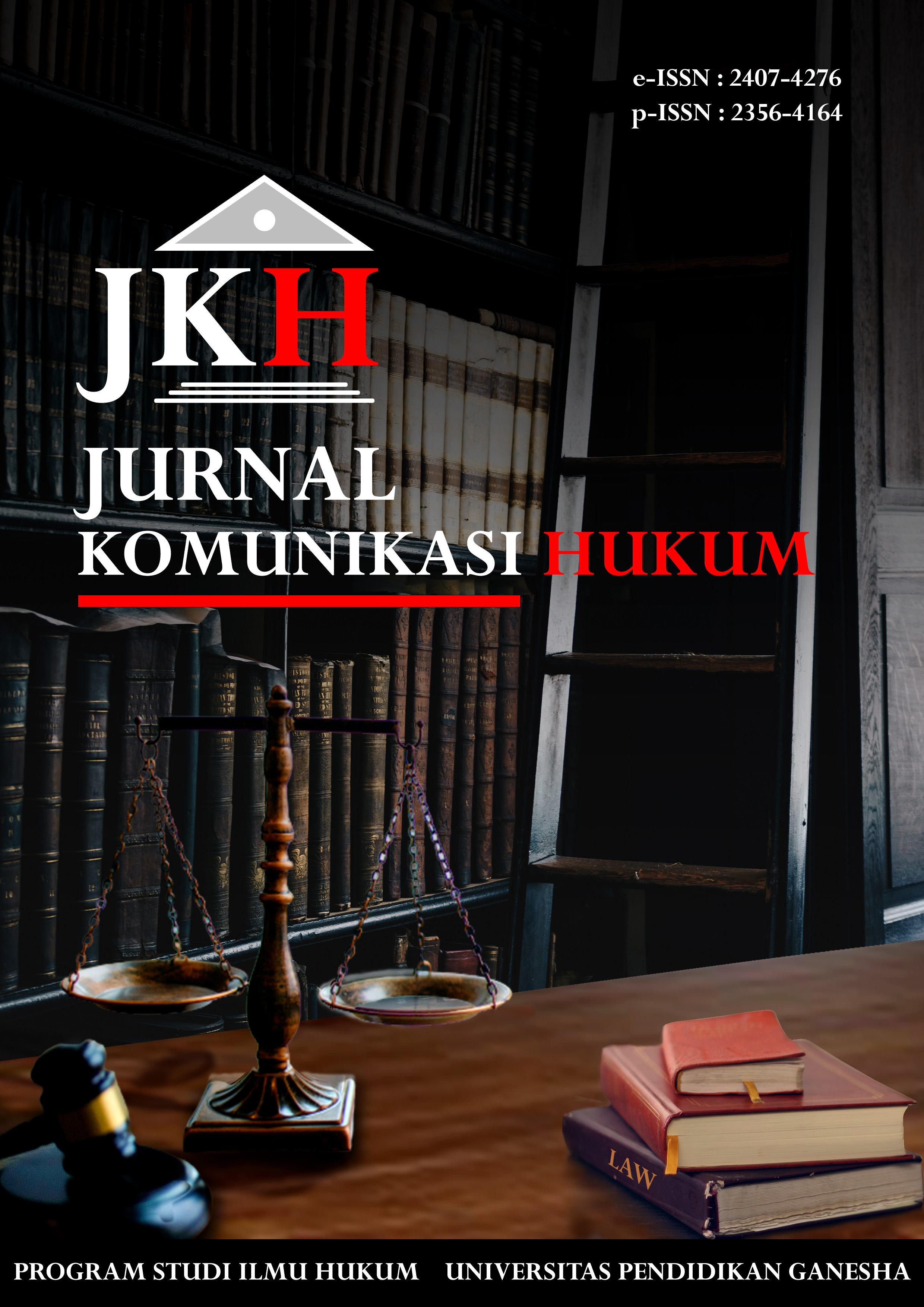Kedudukan Ahli Waris Pengganti (Plaatsvervulling) Dalam Memperoleh Harta Waris Menurut Hukum Islam
DOI:
https://doi.org/10.23887/jkh.v7i1.31769Keywords:
Inheritance and Substitute Inheritance.Abstract
Introduction to the Problem: Substitute heirs have problems in the form of their implementation in Islamic Law which is rooted in the unclear existing rules, this is based on the status of the successor heirs in obtaining inheritance rights from heirs who have died are not known in the type of inheritance distribution. In Islam, as the successor heir still has direct blood ties (nasab), siblings, and partners in the marriage bond (husband / wife) of the deceased heirs. know clearly and completely, regarding the position of a substitute heir fundamentally in obtaining the inheritance obtained from the rights of a person who has died. Design / Methodology / Approach: Through KHI as tangible as Presidential Instruction No.1 of 1991 contains provisions regarding the position of the successor heirs, so that it becomes the basic instrument for the author in determining legal rules and forms of legal rules for replacement heirs in terms of distribution of appropriate inheritance with Islamic law. Findings: In their existence incapable of not being able to provide a more detailed form of clarity regarding the position of the successor heir which has the character of "Uncertainty" because it contains Tentantive elements and does not provide an absolute position for the successor heirs. Type: Research Articles
Downloads
Published
How to Cite
Issue
Section
License
Authors who publish with this journal agree to the following terms:- Authors retain copyright and grant the journal right of first publication with the work simultaneously licensed under a Creative Commons Attribution License that allows others to share the work with an acknowledgement of the work's authorship and initial publication in this journal.
- Authors are able to enter into separate, additional contractual arrangements for the non-exclusive distribution of the journal's published version of the work (e.g., post it to an institutional repository or publish it in a book), with an acknowledgement of its initial publication in this journal.
- Authors are permitted and encouraged to post their work online (e.g., in institutional repositories or on their website) prior to and during the submission process, as it can lead to productive exchanges, as well as earlier and greater citation of published work (See The Effect of Open Access).
Authors who publish with this journal agree to the following terms:
- Authors retain copyright and grant the journal right of first publication, with the work [SPECIFY PERIOD OF TIME] after publication simultaneously licensed under aCreative Commons Attribution License that allows others to share the work with an acknowledgement of the work's authorship and initial publication in this journal.
- Authors are able to enter into separate, additional contractual arrangements for the non-exclusive distribution of the journal's published version of the work (e.g., post it to an institutional repository or publish it in a book), with an acknowledgement of its initial publication in this journal.
- Authors are permitted and encouraged to post their work online (e.g., in institutional repositories or on their website) prior to and during the submission process, as it can lead to productive exchanges, as well as earlier and greater citation of published work (See The Effect of Open Access).












